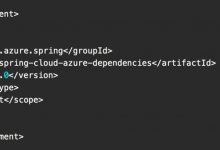在 Object 中还有一个重要的 toString 方法,它会返回表示对象值的一个字符串。下面是一个典型的例子。Point 类的 toString方法将返回下面这样的字符串:
java.awt.Point[x=10,y=20]
绝大多数(但不是全部)的 toString 方法都遵循这样的格式:类的名字,随后是一对方括号括起来的字段值。下面是 Employee 类中的 toString 方法的实现:
public class Employee {private String name;private double salary;private LocalDate hireDay;...@Overridepublic String toString() {return \"Employee[name=\" + name +\",salary=\" + salary +\",hireDay=\" + hireDay + \"]\";}}
实际上,还可以设计得更好一些。最好通过调用 getClass().getName() 获得类名的字符串,而不要将类名硬编码写到 toString 方法中。
public class Employee {private String name;private double salary;private LocalDate hireDay;...@Overridepublic String toString() {return getClass().getName() + \"[name=\" + name +\",salary=\" + salary +\",hireDay=\" + hireDay + \"]\";}}
这样的 toString 方法也可以由子类调用。
设计子类的程序员应该定义自己的 toString 方法,并加入子类的字段。如果超类使用了 getClass().getName(),那么子类只要调用 super.toString() 就可以了。例如,下面是 Manager 类中的 toString 方法:
public class Manager extends Employee {private double bonus;...@Overridepublic String toString() {return super.toString() +\"[bonus=\" + bonus + \"]\";}}
现在,Manager 对象将打印输出如下所示的内容:
Manager[name=...,salary=...,hireDay=...] [bonus=...]
随处可见 toString 方法的主要原因是:只要对象与一个字符串通过操作符 “+” 连接起来,Java 编译器就会自动地调用 toString 方法来获得这个对象的字符串描述。
提示: 可以不写
x.toString()
,而写作
\"\" + x
。这条语句将一个空串与 x 的字符串表示(也就是 x.toString())相连接。与 toString 不同的是,即使 x 是基本类型,这条语句照样能够执行。
如果 x 是一个任意对象,并调用
System.out.println(x)
println 方法就会简单地调用
x.toString()
,并打印输出得到的字符串。
Object 类定义了 toString 方法,可以打印对象的类名和散列码。例如,调用:
System.out.println(System.out);
将输出:
java.io.PrintStream@7852e922
得到这样的结果原因是 PrintStream 类的设计者没有覆盖 toString() 方法。
警告: 令人烦恼的是,数组继承了 Object 类的 toString 方法,更有甚者,数组类型将采用一种古老的格式打印。例如:
int[] luckyNumger = {2, 3, 5, 7, 11, 13}
String s = \"\" + luckyNumger;
会生成字符串 “[I@52af6cff”(前缀 [I 表明是一个整型数组)。补救的方法是调用静态方法 Arrays.toString。代码:
String s = Arrays.toString(luckyNumger);
将生成字符串:
[2, 3, 5, 7, 11, 13]
。
要想打印多维数组(即,数组的数组),则需要调用 Arrays.deepToString 方法。
toString 方法是一种非常有用的调试工具。在标准类库中,许多类都定义了 toString 方法,以便用户能够获得一些有关对象状态的有用信息。
像下面这样显示日志信息非常有益:
System.out.println(\"Current position = \" + position);
提示: 强烈建议为自定义的每一个类增加 toString 方法。这样做不仅自己受益,所有使用这个类的程序员也会从这个日志记录支持中受益匪浅。
java.long.Object 1.0
- Class getClass()
返回包含对象信息的类对象。
- boolean equals(Object otherObject)
比较两个对象是否相等,如果两个对象指向同一块存储区域,方法返回 true;否则方法返回 false。要在自定义的类中覆盖这个方法。
- String toString()
返回表示对象值的字符串。要在自定义的类中覆盖这个方法。
java.lang.Class 1.0
- String getName()
返回这个类的名字。
- Class getSuperclass()
以 Class 对象的形式返回这个类的超类信息。
示例代码
import java.time.LocalDate;import java.util.Objects;/**** @author bpx* @version 1.0.0* @since 1.7.1***/public class Employee {// 姓名private String name;// 薪资private double salary;// 认知日期private LocalDate hireDay;/*** Employee 构造方法* @param name 员工姓名* @param salary 员工工资* @param year 入职年* @param month 入职月* @param day 入职日*/public Employee(String name, double salary, int year, int month, int day) {Objects.requireNonNull(name, \"The name cannot be null\");this.name = name;this.salary = salary;hireDay = LocalDate.of(year, month, day);}/*** 获得员工姓名* @return 用户姓名*/public String getName() {return name;}/*** 获得员工工资* @return 工资*/public double getSalary() {return salary;}/*** 获得用户入职日期* @return 入职日期* @throws NullPointerException*/public LocalDate getHireDay() {return hireDay;}/*** 增加工资* @param byPercent 百分比*/public void raiseSalary(double byPercent) {double raise = salary * byPercent / 100;salary += raise;}@Overridepublic boolean equals(Object otherObject){// a quick test to see if the objects are identicalif (this == otherObject) return true;// must return false if the explicit parameter is nullif (otherObject == null) return false;// if the classes don\'t match, they can\'t be equalif (getClass() != otherObject.getClass())return false;// now we know otherObject is a non-null EmployeeEmployee other = (Employee) otherObject;// test whether the fields have identical valuesreturn Objects.equals(name, other.name)&& salary == other.salary&& Objects.equals(hireDay, other.hireDay);}@Overridepublic int hashCode() {return Objects.hash(name, salary, hireDay);}@Overridepublic String toString() {String str = \"%s[name=%s, salary=%.2f, hireDay=%s]\";return String.format(str, getClass().getName(), name, salary, hireDay);}}
import java.util.Objects;public class Manager extends Employee {private double bonus;public Manager(String name, double salary, int year, int month, int day) {super(name, salary, year, month, day);this.bonus = 0;}public void setBonus(double bonus) {this.bonus = bonus;}public double getSalary() {double baseSalary = super.getSalary();return baseSalary + bonus;}@Overridepublic boolean equals(Object otherObject){if (!super.equals(otherObject)) return false;Manager other = (Manager) otherObject;// super.equals checked that this and otherObject belong to the same classreturn bonus == other.bonus;}@Overridepublic int hashCode() {return Objects.hash(super.hashCode(), bonus);}@Overridepublic String toString() {return super.toString() +\"[bonus=\" + bonus + \"]\";}}
public class Testing {public static void main(String[] args) {Employee alicel = new Employee(\"Alice Adams\" , 75000 , 1987, 12, 15);Employee alice2 = alicel;Employee alice3 = new Employee(\"Alice Adams\", 75000, 1987, 12, 15);Employee bob = new Employee(\"Bob Brandson\" , 50000, 1989, 10, 1);System.out.println(\"alicel == alice2: \" + (alicel == alice2));System.out.println(\"alicel == alice3: \" + (alicel == alice3)) ;System.out.println(\"alicel.equals(alice3): \" + alicel.equals(alice3));System.out.println(\"alicel.equals(bob): \" + alicel.equals(bob)) ;System.out.println(\"bob.toString(): \" + bob);Manager carl = new Manager(\"Carl Cracker\", 80000 , 1987, 12, 15) ;Manager boss = new Manager(\"Carl Cracker\", 80000 , 1987, 12, 15) ;boss.setBonus(5000);System.out.println(\"boss.toString(): \" + boss);System.out.println(\"carl.equals(boss): \" + carl.equals(boss)) ;System.out.println(\"alicel.hashCode(): \" + alicel.hashCode()) ;System.out.println(\"alice3.hashCode(): \" + alice3.hashCode()) ;System.out.println(\"bob.hashCode(): \" + bob.hashCode());System.out.println(\"carl.hashCode(): \" + carl.hashCode());}}
输出:
alicel == alice2: truealicel == alice3: falsealicel.equals(alice3): truealicel.equals(bob): falsebob.toString(): com.xiang117.corejava.Employee[name=Bob Brandson, salary=50000.00, hireDay=1989-10-01]boss.toString(): com.xiang117.corejava.Manager[name=Carl Cracker, salary=80000.00, hireDay=1987-12-15][bonus=5000.0]carl.equals(boss): falsealicel.hashCode(): -808853550alice3.hashCode(): -808853550bob.hashCode(): -624019882carl.hashCode(): -2004699436
 爱站程序员基地
爱站程序员基地


